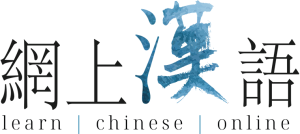Analysis of text n°3
Click to open.
Study the text and pay great attention to the explanations. Write down words and phrases that are new to you. Make a list in English and find the words / expressions in Chinese characters orally and then in writing (Chinese characters).
When you have mastered the new spoken and written vocabulary from English to Chinese, it is good to come back to the text to train the listening again: listen to the text as many times as necessary to understand it without error.
Same principle for writing: you must read the text, aloud ideally, understanding it without a hitch.
我住在北京
Wǒ zhù zài běijīng
I live in Beijing
我叫李亮,是一名法国人。在中国三年了,我很喜欢中国,很少回去法国。我在北京的一家美国苹果电脑店工作,这家商店的对面是中国的小米店,后面有个出租车站,也有火车站,买东西的客人很多,我们一起工作的一个美国人,他的一家都住在这里,儿子和女儿也在这里的高中上学。
Wǒ jiào Lǐ Liàng, shì yī míng Fǎguórén. Zài Zhōngguó sān nián le, wǒ hěn xǐhuān Zhōngguó, hěn shǎo huíqù Fǎguó. Wǒ zài Běijīng de yī jiā měiguó píngguǒ diànnǎo diàn gōngzuò, zhè jiā shāngdiàn de duìmiàn shì zhōngguó de xiǎomǐ diàn, hòumian yǒu gè chūzūchē zhàn, yě yǒu huǒchēzhàn, mǎi dōngxī de kèrén hěnduō, wǒmen yīqǐ gōngzuò de yī gè Měiguórén, tā de yī jiā dōu zhù zài zhèlǐ, érzi hé nǚ'ér yě zài zhèlǐ de gāozhōng shàngxué.
My name is Li Liang, I am French. I live in China for three years. I really like China. I rarely return to France. I work in an American Apple Store in Beijing. In front of this store there is a Xiaomi store. Behind there is a taxi rank. There is also a train station. There are a lot of customers shopping. An American who works with us has his whole family living here. His son and daughter also attend local high school.
- 回去法国 must seem wrong to you , because we have seen that with 回去 or 回来 the place is placed in the middle: 回法国去. In reality, it depends if we insist on going back 回法国去 or on the place 回去法国. In Mandarin Chinese, the end of the sentence is often the culmination of the action and what is before the verb is the setting where this action takes place.
- The classifier for "store, shop" is 家: 这家商店, 一家苹果电脑店.
- When the word "store, shop" is alone, we prefer to use the bisyllabic word 商店. When it is formed with another word to specify which store it is, we only use the 店: 电脑店 "computer store", 书店 "bookstore", etc. But as always in Mandarin Chinese, this is not a hard-and-fast rule.
- 客人 kèrén "guest" also means "customer".
- 高中 gāozhōng: high school.
我一个星期工作五天,上午九点去商店,中午十二点吃饭,下午五点钟回家,睡觉前我喜欢看一会儿电视和读一点儿中文书。星期天,天气不热的时候会和我的小狗出去。下雨的时候会打电话叫朋友去茶馆喝茶。
Wǒ yī gè xīngqī gōngzuò wǔ tiān, shàngwǔ jiǔ diǎn qù shāngdiàn, zhōngwǔ shí'èr diǎn chīfàn, xiàwǔ wǔ diǎn zhōng huíjiā, shuìjiào qián wǒ xǐhuān kàn yīhuǐr diànshì hé dú yīdiǎnr zhōngwén shū. Xīngqītiān, tiānqì bú rè de shíhou huì hé wǒ de xiǎo gǒu chūqù. Xiàyǔ de shíhòu huì dǎ diànhuà jiào péngyou qù cháguǎn hē chá.
I work five days in a week. We go to the store at 9 o'clock. We eat at noon and come home at 5 p.m. Before going to sleep, I like to watch TV a bit and read some books in Chinese. On Sundays, when it's not hot, I go out with my little dog. When it rains, I call my friends to go drink tea at the tearoom.
- 睡觉前 "before sleeping". In Chinese the word "before" 前 or "after" 后 is placed after the sentence that they modify: 回家后 "after coming back home".
- 读 and 看, combined with 书 "book" can mean either "to study" or "to read".
- 天气不热的时候会和我的小狗出去。/ 下雨的时候会打电话 In these sentences, 会 indicates a probability and not a skill.
- 打电话叫朋友: the 叫 "to be named" can also mean "to call" or even "to ask someone to do something". Example: 我叫他去。 "I asked him to go".
